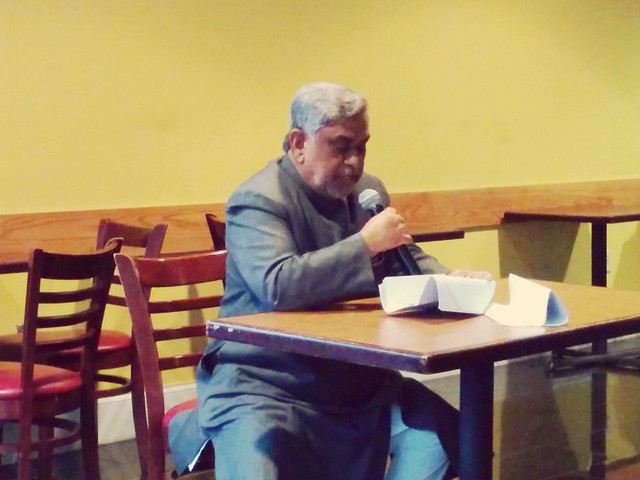By Kashif-ul-Huda, TwoCircles.net
Boston: Renowned Islamic scholar of India Professor Akhtarul Wasey has emphasized that in India Islam or Muslims have been part and parcel of Indian landscapes for over a thousand years.
“Since their arrival in India, Muslims have paid close attention to Hinduism and India and showed keen interest to learn about the culture, practices, and customs,” Professor Wasey said during a talk on the topic of ‘Islam in Dialog with Indian Religions’ at Islamic Society of Boston Cultural Center (ISBCC) here on Tuesday evening.
The program was organized by American Federation of Muslims of Indian Origin (AFMI).
Professor Wasey declared Al Biruni as the first Indologist. Al Biruni ‘s Taarikh ul Hind, a detailed study of Hinduism and India, is the first comprehensive book on India and its residents.
“Medina covenant is a proof that Islam recognizes pluralism,” said Professor Wasey.
Muhammad Bin Qasim who invaded Sindh didn’t interfere in Hindu religious matters. Hindu temples enjoyed the same status as Christian churches and Jewish synagogues. Muslim sultans also adopted the policy of tolerance towards other religions.
Professor Wasey also talked about contributions of Sufis in promoting brotherhood and love. “Examples of Khwaja Moinuddin Chishti or Nizamuddin Aulia in building bridges of coexistence between communities are well-known”, opined Professor Wasey.
Replying to a question Professor Wasey said, “Islam is homogenous in belief and heterogeneous in its practice.” Islam as practiced in India, reffered to as Indian Islam provides guidance on how Islam or Muslims can exist in the new globalized and pluralistic world. Indian Islam has existed alongside multiple religions in India for over a thousand years, Muslims in India have been rulers here as well as the one ruled by non-Muslim rulers, Muslims here have also been part of electoral democracy over 60 years without losing their religious or cultural identity. Majoritarian arrogance, which is creating problems in other parts of the world, is not there in Indian Islam. All these are important points that world Muslims can learn from Indian Muslims.
Professor Wasey showed his concerns for recent hate speeches and anti-Muslim violence in the last few years in India but he was quick to say that communal forces are not representative voices of Hindus. “Change of government doesn’t mean change of Constitution. Constitution of India recognizes me as religious and linguistic minority,” said Professor Wasey, who is also the National Commissioner for Linguistic Minorities in India.
He also talked about interfaith dialogue as a way out of increased communalism in India. He said, attempts are being made to bring religious leaders on topics such as illiteracy, poverty, gender discrimination- issues that affect all communities- as a way to minimize the communal forces.
Suhaib Siddiqi, president-elect of AFMI announced that Ravish Kumar of NDTV and Carla Power, author of “If The Ocean’s Were Ink: An Unlikely Friendship and Journey to the Heart of the Quran”, have confirmed their participation in AFMI’s silver-jubilee convention in Boston on August 29, 2015.


